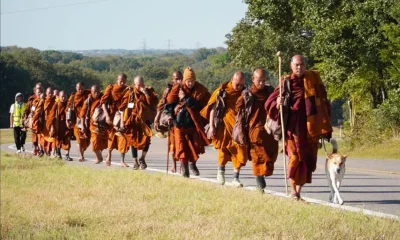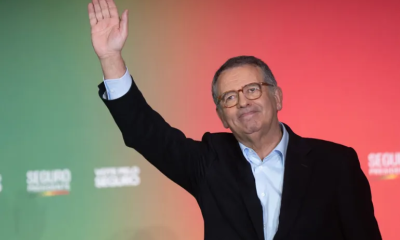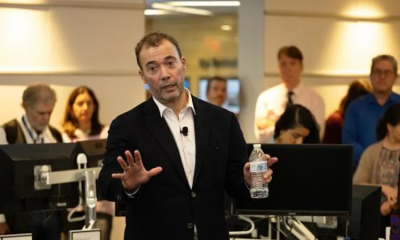Editorial
The funny side of the fuel price hike

The post-announcement drama that followed the fuel price increase announcement would have been funny but for its ripple effect on the poor and not-so-poor. The rich and the well-to-do are one cup of tea; and the rest of the population another. The three-wheeler operator, whether he hires his own vehicle or that belonging to a mudalali, can and will increase his rate, but at the price of the number of hires he gets per day. A bus fare increase must follow, although how high that would be has not yet been worked out or announced. The haulage cost of essentials must rise and this will have a pervasive effect across the gamut of goods and services; and they will all come home to roost on the consumer. No wonder then that what many economists call a long delayed but essential measure has kicked up as much dust as it has and the government is already bleeding.
That’s one side of the coin. The other was the stunning statement of SLPP General Secretary Sagara Kariyawasam, harshly condemning the price increase and demanding the resignation of Energy Minister Udaya Gammanpila. Journalists cutting their teeth in the trade (they prefer it to be called a profession) are taught that in writing a news story, unlike in sex, the climax comes first. Kariyawasam’s statement was near enough to Gammanpila’s announcement for the script to conform to the pyramidal structure of a news story. There the least important or interesting material or information comes at the tail with the juicy stuff at the top. That makes it easier for the sub-editor to trim the ‘copy’ to fit into the available space; or for that matter for the reader not to wade through a long article. Kariyawasam, who is often presented in the media as an attorney-at-law, cannot be so naive as to believe that Gammanpila announced his own decision a few days ago. Obviously something this important has to have the concurrence of the president, prime minister and the hierarchy of the government. In this instance it was approved by the Cabinet Sub-Committee on the Cost of Living, headed by the president and including the prime minister.
But Kariyawasam ignored all that and demanded Gammanpila’s resignation. The latter who seized the opportunity to earn himself some brownie points said he volunteered to be the bearer of the bad news to spare the president and prime minister of the resulting flak. He also had the temerity to ask “Who is Sagara Kariyawasam?” JVP leader, Anura Kumara Dissanayake, gave him the answer. “He is the person who signed your nomination papers,” he replied. All that apart, Kariyawasam like Gammanpila, would not have fired the missile (or missive), ironically bearing the PM’s photograph on the letterhead, on his own volition. He was obviously instructed to do what he did by somebody powerful – very powerful. It has been widely suggested that this was dual citizen Basil Rajapaksa now sojourning in the USA, his first (or second?) home. He’s been away now for several weeks and no date of return has yet been mentioned although as head of a very powerful Task Force, his presence in the country is important.
There have been some feeble responses to this allegation. One of these was the assertion that if Basil, a powerful member of the Royal Family, wished to make his point, he could easily have spoken to either of his brothers, the president or the prime minister or even nephew, Namal. Instead why did he choose Kariyawasam to fire off a controversial statement if he indeed did so? The latter, of course, has a National List seat in Parliament together with a lifetime pension (for himself and his widow), courtesy of the taxpayer. For this he has to thank a powerful patron. This, some have it, is Basil Rajapaksa. But that, of course, remains an unproven and probably never to be proven allegation. It was Basil after all, who created the Sri Lanka Podu Jana Peramuna (SLPP), aka Pohottuwa, which leads the ruling coalition. Thus, apart from his position as an immediate family member of the leaders of the ‘Double Paksa’ government, as our regular columnist, Kumar David, delights in calling the ruling Establishment, he is much more. He created the party that won the last election and is its National Organizer. His influence then on cabinet making and National List choices would have been pervasive.
It is also pertinent to ask why the Samagi Jana Balavegaya (SJB) chose to bring a vote of no confidence against Gammanpila rather than against the government. The Sajith Premadasa party, obviously knows as well as everyone else that the fuel price increase was a government decision rather than one unilaterally made by the energy minister. Why then is it training its guns at the loquacious Gammanpila rather than the government itself? We are told that it’s all a matter of strategy debated in the inner councils of the major opposition party. The thinking is that if a no confidence motion was moved against the government, all its components will unitedly fight it. But if it is aimed at Gammanpila, there will be those deeply embarrassed about the price increases and its effect on their constituents who may be tempted to break ranks. Sagara Kariyawasam, for instance, will find it difficult to express confidence in Gammanpila. But he has an easy way out. He can be absent at voting time like so many have done before. Hopefully, Ranil Wickremesinghe would have taken his National List seat before the forthcoming debate. It will be interesting to hear what he has to say.
Editorial
Big Brother coming?

There is already a substantial and growing corpus of analytical work criticising the proposed anti-terror laws, which are no less draconian than the PTA (Prevention of Terrorism Act) they are expected to replace. What the campaigners for democracy and good governance expected of the JVP-led NPP was the abolition of the PTA and not another set of bad laws in its place.
Unsurprisingly, many legal experts have voiced serious concern over the proposed Protection of the State from Terrorism Act (PSTA). Prominent among them is former Minister of Justice, Constitutional Affairs, and Foreign Affairs Prof. G. L. Peiris, who presented a well-argued critique of the proposed anti-terror legislation, at a media briefing on Thursday. He and some other senior Opposition politicians called the PSTA a grave danger to democracy. Anyone who has studied the proposed anti-terror laws will have no difficulty in agreeing with him and other critics of the PSTA.
One of the main campaign promises of the JVP-led NPP was to abolish the executive presidency. During their opposition days, President Anura Kumara Dissanayake and other JVP/NPP seniors were instrumental in having the powers of the Executive President reduced through the 17th, 19th and 21st Amendments to the Constitution. They also vehemently condemned the PTA, demanding its abolition. Now, an opportunity has presented itself for the JVP/NPP leaders to carry out what they wanted their predecessors to do—abolition of the executive presidency and the PTA. But they are soft-pedalling the dictatorial powers vested in the executive presidency and trying every trick in the book to retain the PTA in the form of the PSTA. If the proposed anti-terror laws are ratified—perish the thought—President Dissanayake will have more dictatorial powers including the one to ban any organisation simply by issuing a gazette notification to that effect. What guarantee is there that the government will not abuse that power to ban political parties the way President J. R. Jayewardene did; he proscribed the JVP in the early 1980s by falsely accusing it of being involved in anti-Tamil violence. The JVP stands accused of working towards the establishment of a one-party system. There is hardly anything an outfit like the JVP will not do to retain its hold on power.
Another serious issue Prof. Peiris has rightly flagged is that the PSTA seeks to empower the Defence Secretary to issue detention orders to have suspects in judicial custody transferred to police custody. Thus, the JVP, whose leader—President Dissanayake—appoints the Defence Secretary and has the police under its thumb, will be in a position to circumvent the judicial process and have anyone detained for a maximum of one year.
Pointing out that the proposed PSTA has categorised 13 offences as acts of terrorism although they can be dealt with under other laws, Prof. Peiris has argued that the PSTA is riddled with ambiguities. This, he has said, blurs the critical distinction between ordinary criminal offences and acts of terrorism, which require “clear and unambiguous definition with no scope for elasticity of interpretation.” Grey areas in any legislation are minefields; they lend themselves to misuse, if not abuse, and therefore must be eliminated in the name of democracy and the people’s rights and liberties.
Another danger in the proposed PSTA is the sweeping powers to be vested in the Defence Secretary, a political appointee, including the one to designate ‘prohibited areas’, Prof. Peiris has revealed. Entering such places will constitute an offence punishable by imprisonment up to three years and a fine of up to Rs. 3 million. One cannot but agree that such provision will have a chilling effect on media personnel as they will be prohibited from photographing, video recording and sketching or drawing them.
The deplorable manner in which the JVP/NPP is trying to safeguard the interests of the incumbent dispensation on the pretext of protecting the state against terror makes one hope and pray that Sri Lanka will not end up being like Oceania in Orwell’s Nineteen Eighty-Four, with Big Brother watching every citizen menacingly. Pressure must be brought to bear on the government to deep-six its PSTA forthwith.
Editorial
When Prez has to do others’ work

Saturday 14th February, 2026
A nine-day protest by beach seine fishers against a ban on the use of tractor-mounted winches to haul their nets was called off yesterday following a discussion with President Anura Kumara Dissanayake. The protesting fisherfolk had been demanding a meeting with the President, but in vain. Why did the President wait for nine days to invite them to a discussion? He could have stepped in to have the fishers’ protest called off on the first day of agitation itself.
Governments usually do not agree to negotiate with any protesters immediately after the launch of their agitations lest others should be encouraged to do likewise. Politicians in power seek to wear down protesters by resorting to brinkmanship. They consider it infra dig to blink first, so to speak. This is the name of the game, but governments and the public stand to gain when the issues that lead to protests and strikes are resolved promptly.
Minister of Fisheries Ramalingam Chandrasekar and his deputy Ratna Gamage opted to play a game of chicken with the protesting fishers, refusing to soften their position that the ban on ‘mechanised’ beach seine fishing must continue. They declared that the ban at issue was non-negotiable, provoking the fishermen into intensifying their protest. They should have invited the protesters to the negotiating table.
There are two schools of thought about the use of tractors fitted with winches to drag fishing nets. Environmentalists are of the view that the use of winches to haul nets causes serious environmental issues, such as the destruction of coral reefs. Those who practise this fishing method argue that there are no corals in the areas where they practise beach seine fishing, and they avoid reefs, which damage their nets. Tractors do not cause sea erosion, they insist. Daring the government to prove scientifically that the homegrown method of hauling nets causes environmental damage, they demanded that they be allowed to use tractors and winches pending an investigation. Why the government did not adopt the proposed course of action is the question. It should have taken up the fishermen’s challenge.
Cabinet Ministers and top bureaucrats rarely succeed in resolving labour disputes under their own steam. They only confront strikers or protesters, provoking the latter into escalating their trade union action, much to the inconvenience of the public. The President has to intervene to do the work of ministers and ministry secretaries and resolve labour issues. This has been the situation under successive governments.
One of the main arguments against the executive presidency is that the President tends to run a one man/woman show, undermining the Cabinet and the state service. Unbridled powers vested in the President have been blamed for this situation, which however is also due to the failure of Cabinet Ministers and top bureaucrats to carry out their duties and functions effectively.
If ministers cannot tackle serious issues without presidential interventions, which are frequent, why should the public pay through the nose to maintain a Cabinet of Ministers?
Editorial
A welcome judgement

Friday 13th February, 2026
Justice has caught up with those who killed SLPP MP Amarakeerthi Athukorale and his security officer. The Gampaha High Court has sentenced 12 convicts to death for the double murder they committed during the 2022 uprising, popularly known as Aragalaya. This judgement has evoked the dreadful memories of the crimes committed in the name of a people’s protest movement about four years ago.
Aragalaya began as an outpouring of public resentment fuelled by the 2022 economic crisis and the resultant shortages of essentials. It developed into what may be described as a carnival of protests at Galle Face, where a motley crowd of activists championing various causes gathered under the ‘Gota Go Home’ banner. It was subsequently hijacked by some ultra-radical political forces with sinister agendas following an SLPP goon attack on the Galle Face protesters in May 2022. Retaliatory attacks carried out by organised groups among protesters turned Aragalaya into a firenado of violence that swept through many parts of the country. It was during that violent phase of Aragalaya that mobs killed MP Athukorale and his security officer and torched scores of houses belonging to SLPP politicians and their cronies. All SLPP MPs would have suffered the same fate as Athukorale if they had not gone into hiding. The destructive forces responsible for committing crimes in the name of Aragalaya must be brought to justice.
The genuine Aragalaya activists who acted as a pressure group, calling for an end to the Rajapaksa rule, wanted to call off their protest campaign following the resignation of President Gotabaya Rajapaksa; their goal was to see the back of Gotabaya as evident from the catchy hashtag, “GotaGoHome”. But some opportunistic political forces, particularly the JVP, sought to use Aragalaya to capture Parliament. Minister K. D. Lalkantha himself has admitted that the JVP strove to lead the Aragalaya activists to Parliament, but without success. JVP leaders are seen in social media videos urging the people to rush to Colombo and march on Parliament and deliver a coup de grace to a teetering system. If the military had not made a decisive intervention at the eleventh hour, using force, aggressive mobs that surged forward menacingly, pulling down barricades, would have captured Parliament and perhaps set it on fire, plunging the country into anarchy. One may recall that a grenade attack on a UNP parliamentary group meeting chaired by President J. R. Jayewardene, with Prime Minister R. Premadasa seated next to him in 1987 almost made the country descend into anarchy. That bomb attack, which left a minister and a public official dead and 16 others injured, was blamed on the JVP.
A former senior Indian police officer discusses grey-zone warfare in an article we have reproduced today from The Statesman, an Asia News Network member. This doctrine of hybrid conflict has gained currency in diplomatic, defence and intelligence circles the world over. What we witnessed during the final phase of Aragalaya (2022) can be dubbed ‘grey-zone terrorism’. Arson attacks on the houses of prominent SLPP politicians and others were well organised; they could not have been carried out by flash mobs consisting of non-violent protesters. Unfortunately, those crimes have not been probed properly. The then SLPP-UNP government was wary of investigating those serious transgressions; instead, it generously awarded compensation to the victims of arson attacks far in excess of their losses. The incumbent administration has rightly instituted legal action against some of the culprits who helped themselves to public funds by playing the victim card and inflating estimates, but most of the arsonists and the masterminds behind the arson attacks have got off scot-free. They must be traced and made to face the full force of the law.
The welcome judgement in the Athukorale murder case offers a lesson that should not go unlearnt. Those who join mobs and commit crimes must remember that they run the risk of being tried and thrown behind bars. On seeing the instigators of violence during Aragalaya savouring power and going places, the killers of Athukorale and his body guard must be ruing the day they committed that crime.
-

 Business4 days ago
Business4 days agoAutodoc 360 relocates to reinforce commitment to premium auto care
-

 Midweek Review4 days ago
Midweek Review4 days agoA question of national pride
-

 Opinion3 days ago
Opinion3 days agoWill computers ever be intelligent?
-

 Midweek Review4 days ago
Midweek Review4 days agoTheatre and Anthropocentrism in the age of Climate Emergency
-

 Editorial6 days ago
Editorial6 days agoThe JRJ syndrome
-

 Opinion4 days ago
Opinion4 days agoThe Walk for Peace in America a Sri Lankan initiative: A startling truth hidden by govt.
-

 Foreign News6 days ago
Foreign News6 days agoPortugal elects Socialist Party’s Seguro as president in landslide
-

 Foreign News7 days ago
Foreign News7 days agoWashington Post chief executive steps down after mass lay-offs













